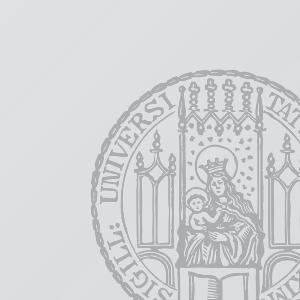Navigating Customer Experiences Across Physical and Digital Worlds


Quick Info: Master ׀ Seminar ׀ English ׀ Summer term
| Lecturer | Prof. Dr. Martin Paul Fritze |
|---|---|
| Times | Winter Term October 14, 2025 until January 15, 2026 (blocked) |
| Language | English |
| Credits | Master Seminar, four contact hours |
| Application | Please apply via the following link |
| Application Deadline | 10.09.2025 |
| Contact | David Hähnchen (d.haehnchen@lmu.de) |
In an increasingly interconnected world, customer experiences are no longer confined to either physical or digital environments—they exist at the intersection of both. This course explores the evolving landscape of phygital experiences, where brands integrate physical and digital touchpoints to create more seamless, immersive, and personalized customer experiences.
In a narrower sense, phygitality refers to the integration of physical and digital elements that provide customers with a seamless, omnichannel shopping experience. It also encompasses technologies that bridge these two worlds, such as blockchain-based assets, augmented reality (AR), virtual reality (VR), and extended reality (XR). In a broader sense, it reflects the ongoing morphing of physical and digital lives, raising questions, for example, related to consumer well-being, privacy, and sustainability.
The course will consist of discussions of current research in these fields. Student groups will be assigned academic papers to critically reflect on, particularly regarding their implications for business practice. Moreover, students will conduct their own analysis on a chosen topic, present their key arguments in class, and submit a final seminar paper. This course is designed to introduce students to emerging areas of consumer behavior research and to illustrate how academic insights can help navigate uncharted developments in business and society.
Active class participation is mandatory. Students will be assigned to analyze, discuss, and present a research paper, and will prepare a seminar paper on a topic derived from contemporary research discussions. Grading will be based equally on the research paper presentation (50%) and the seminar paper (50%). Both tasks are typically completed in groups of 2–3 students, but each student must contribute a written section (22,200–33,300 characters) to the joint seminar paper and present a 10-minute part of the group presentation, followed by a 5-10 minutes Q&A session (per person).
| Date | Day | Time (s.t.) | Place | Content |
|---|---|---|---|---|
| Oct 14, 2025 | Tuesday | 11:00 AM - 01:00 PM | Room 332 (Think Tank), Ludwigstr. 28/RB | Kick-off and introduction |
| Oct 22 , 2025 | Wednesday | 03:00 PM - 06:00 PM | Room 329, Ludwigstr. 28/RB | Session I: Selected issues in phygital customer experiences |
| Oct 30, 2025 | Thursday | 09:00 AM - 02:00 PM | Room 332, Ludwigstr. 28/RB | Session II: Group paper presentations; seminar paper assignments |
| Nov 03-07, 2025 | 09:00 AM - 06:00 PM | Room 331, Ludwigstr. 28/RB | Individual sessions (upon request) | |
| Nov 07, 2025 | Friday | 12:00 AM - 04:00 PM | Room 329, Ludwigstr. 28/RB | Session III: Interim presentations on seminar paper |
| Nov 17-21, 2025 | 09:00 AM - 06:00 PM | Room 331, Ludwigstr. 28/RB | Individual sessions (upon request) | |
| Dec 08, 2025 | Monday | until 11:59 AM | Submission deadline for seminar paper | |
| Jan 13, 2026 | Tuesday | until 09:00 AM | Submission deadline for final presentations | |
| Jan 15, 2026 | Thursday | 09:00 AM - 01:00 PM | Room 332, Ludwigstr. 28/RB | Final presentations |